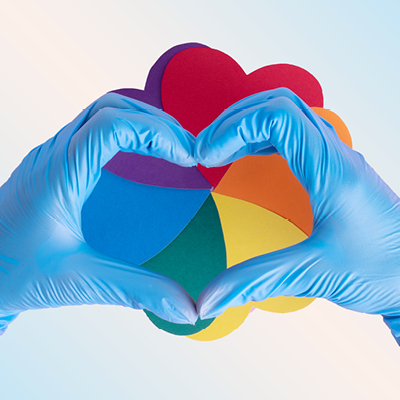Closing the gap on health disparities in the LGBTQ community
Posted May 03, 2021 by Scott T Hamler, MD

All of us rely on healthcare services at one time or another — and many of us take them for granted. But the sad truth is in today’s world, access to medical advice and treatment isn’t equal.
It is true LGBTQ (Lesbian, Gay, Bisexual, Transgender and Questioning) individuals face health disparities in a number of ways. As a result, this community is at a higher risk for certain medical conditions, has less access to healthcare and experiences worse health outcomes than their heterosexual counterparts.
According to HealthyPeople.gov, health disparities among the LGBTQ community include:
By eliminating health disparities, LGBTQ individuals could increase their physical and mental well-being, leading to healthier, longer lives. Not to mention, it would reduce disease transmission and progression, as well as decrease healthcare costs.
Why the health disparities?
In the last decade, the LGBTQ community has made a lot of progress in securing equal rights, so why the health disparities?
There are several reasons for the unequal access to healthcare for this community, including:
Summa Health’s Pride Clinic
When it comes to healthcare, LGBTQ patients face many barriers, including concerns about confidentiality, fear of discrimination and negative attitudes toward treatment.
Because of this, it’s estimated that anywhere from 50 to 75 percent of the LGBTQ population does not share their gender identity, gender expression or sexual orientation with their healthcare provider, putting them at higher risk for health problems.
That’s why Summa Health opened its Pride Clinic in 2019 to help close these gaps in health disparities and address the community’s unique health needs. The clinic offers high-quality, compassionate care for all patients regardless of sexual orientation or gender identity so they can achieve the highest level of health possible.
Summa Health’s Pride Clinic offers the following services:
We also offer assistance coordinating care to services such as:
To learn more or to schedule an appointment with Summa Health’s Pride Clinic, call 234.867.7740 or visit summahealth.org/prideclinic.
About the Author
Vitality eNews Sign Up
Receive the Summa Health eNewsletter for the latest health tips, advice and updates.


